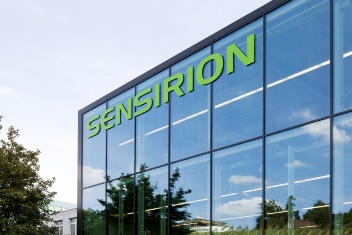Sensirion joins Atmel’s sensor hub platform ecosystem to boost the development of smarter devices in the internet of things and wearables.
Sensirion has partnered with leading platform manufacturer Atmel to create an easy-to-use and power efficient sensor hub solution. This relationship allows Sensirion to provide its customers with turnkey sensor hub solutions and enables designers to create smarter, connected devices including mobile devices and wearables.
Atmel’s sensor hub solutions combine inputs from different sensors, which range from motion sensors to environmental sensors, such as Sensirion‘s humidity and temperature sensors. These sensor hub solutions not only provide real-time direction, orientation and inclination data, but also now include environmental information, bringing visibly superior performance to a range of applications including gaming, navigation, augmented reality, and contextual awareness.

"As devices get smarter and more connected, there is an increasing need for environmental sensors, such as humidity and temperature," said Johannes Winkelmann, Technology Evangelist, Sensirion. "By partnering with Atmel on their ultra-low power sensor hub solutions, our customers can implement always-on sensor solutions while maintaining low-power consumption to increase the battery life for many of these battery-operated devices."
“With the increasing number of sensors in consumer devices today, low power is a key differentiator specifically for battery-powered devices,” said Espen Krangnes, Sr. Product Marketing Manager, Atmel Corporation. “The platform is the first of many devices in this series that is specifically tailored for sensor hubs.
Our ultra-low power and devices features, and the flexible development ecosystem bundled with the best sensors and sensor software in the market allows customers to create unique and differentiating products. We are excited to partner with key sensor companies in the market to offer the best solutions for our customers.”
According to market analyst BCC Research, the market for sensors is expected to increase to nearly $91.5 billion by 2016. With more sensors being integrated into mobile, gaming, consumer, wearables, and healthcare devices, there is an increasing demand to offload the application processor with a standalone microcontroller that fuses the sensor data.